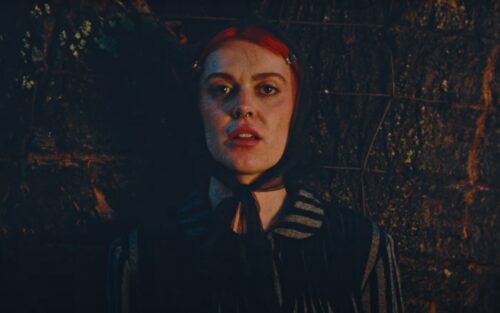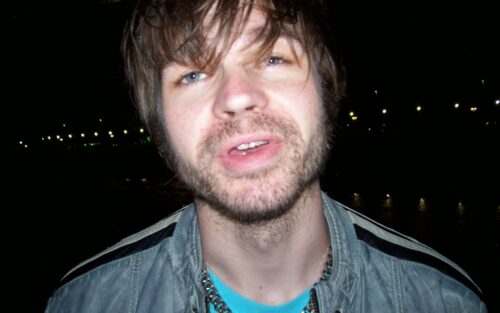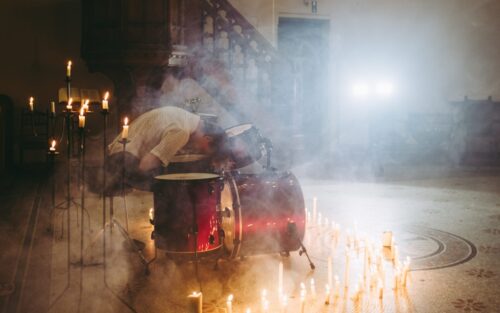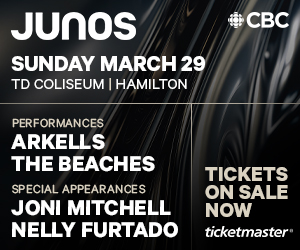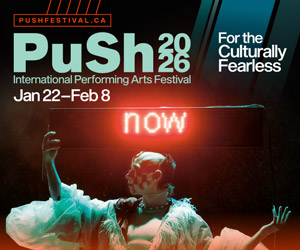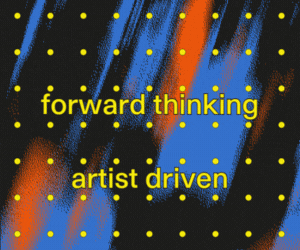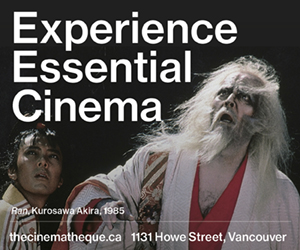Kneecap Are Just Here For The Craic
The controversy-stirring hip-hop trio from the North of Ireland are inspiring people to come together for a talk – and maybe a rave.
By Ben Boddez
Photos by Peadar O'Goill
- Published on
After dropping their first single, “C.E.A.R.T.A” – which means “Rights” in Irish – back in 2017, Mo Chara, Moglaí Bap and DJ Provaí have been consistently releasing singles, finally arriving at a debut album, Fine Art. Not only that, they’re starring as themselves alongside Michael Fassbender (as Bap’s father) in a self-titled film about their lives, which has already picked up an Audience Award at the Sundance Film Festival and is set to release this August.
Although the band has already attracted a lot of controversy and chatter from both Unionist loyalists in the UK and conservative Irish-speakers who believe they’re sullying an ancient tongue with drug-addled lyrics – they’ve already been banned from radio, condemned by Democratic Unionist Party politicians after a viral video of a “Brits Out” chant, snuck clothing with Palestinian colours under their outfits into a TV interview after being told not to speak out, and been vetoed for a grant by the UK government on the basis of “opposing the United Kingdom itself,” an act that the band is now challenging legally – at the end of the day, they want us all to start a dialogue and come together. It’s why they set their latest album in a fictional pub called The Rutz: they see it as the great equalizer, a place where all kinds of people convene to have a chat.

“Irish people just love to talk all day long,” says Bap. “The nightclub doesn’t facilitate that because the music’s too loud – that’s why most young people go to the pub instead. We try to bring all aspects of young people’s culture into the pub: maybe that would be some loud music playing on a speaker at one moment, or some fella playing on the guitar, and the next minute there would be someone singing an old folk song. It’s kind of like the album itself.”
“The Rutz is the type of place where you’d get away with wearing a suit, but also get away with wearing your pajamas and slippers, you know?” adds Chara.
Bap and Chara met in 2017 at the local Irish-language cultural centre, where Bap had organized a festival for people who wanted a place to socialize in Irish – “It was sort of like we were a lost tribe of people, and we found this place where we can come together, be ourselves, party, take MDMA for the first time – allegedly,” Bap says with a smile. Soon after, they participated in a march together calling for the language to have equal status with English, which inspired “C.E.A.R.T.A.” after Bap’s other friend was arrested, spending the night in prison waiting for a translator after refusing to speak English to the police.


The sentiment behind these political uprisings has been brewing for centuries. British colonialism split Ireland into the north and south in an act called Partition, imposing Protestant policies and the English language through gerrymandering politicians. In the late ’60s and early ’70s, Catholics in the north demanded rights and catapulted the country into 30 years of violent uprising in a period known as The Troubles. Provaí is the only member of the band old enough to remember what it was like to have soldiers lining the streets, but the period has resonated through their families deeply. It’s made them passionate about promoting the Irish language to a new generation, and it’s also why you’ll never hear them referring to their homeland by the official name, “Northern Ireland.”
“‘A state for the Protestant people,’ that was what it was called when it was created,” Chara says. “That’s not the background we were from. Calling it Northern Ireland legitimizes what we believe to be an illegal state that was created off the back of an invasion. The north of Ireland is just what area of Ireland we are. To someone who isn’t from here, the difference might mean nothing, but it’s a deep-rooted history, and people get very passionate about the difference in those words.”
“The byproduct of this state is that there was no Irish language school in the North until 1972. There was no Irish secondary school until 1991. That was their opinion on the language, on the Irish natives that settled the country. They wanted to oppress them. They were hoping the language would die out completely, but thankfully people around here all came together, and it’s getting a lot stronger in the cities. We just got Irish language legislation last year. So things are changing for the better.”
When it comes to those who see Kneecap’s use of the Irish language in their music as inherently political, instead of just something that someone with an Irish background would do anyway, the band doesn’t necessarily disagree – they just hope people understand why it’s become that way.
“One of the things we always say about this is that to us, it’s a language. It’s a means of communication, a means of survival, culture and traditions. That’s all that this is to us,” Chara says. “But when you have colonialism, that force that comes here and outlaws your language, then they are the ones who have politicized it by making this language illegal.” “In a sense, we’re actually trying to depoliticize it,” Bap adds. “We make fun of both sides of the community here, try to make light of it. It’s just a language, and it belongs to whoever wants it to belong to them.”

That idea of making light of the serious situations that have built them is one of the core beliefs of Kneecap. As Chara will tell you, Kneecap don’t really want to be put in the position of being political commentators – they’d rather be a band first and foremost. With their history, they know that it’s unavoidable, but like a documentary that they’ve been inspired by that finds Catholics and Protestants coming together at a rave, they hope the real reason to get into Kneecap is their fun-loving attitude and gleeful musical chaos, melding both genres and ideologies.
“It’s like South Park – that really extreme version of satire that creates a dialogue for people to talk about serious situations. The way they go about it is so bizarre that no normal person could agree with the sentiment of what they’ve said, but it makes people come out against them, and others to come out defending them,” Chara says.
“I think that satire and joking really makes it a lot easier to get over those hurdles,” adds Bap. “Since we didn’t personally experience a lot of the Troubles, we’re able to have this different perspective on everything and make light of the situation. This builds bridges, so that when we meet people from the other side, maybe we don’t agree politically, but we still get along fine.”
The inspiration behind the title Fine Art comes from this mentality of creating something that inspires a conversation. The title track intersperses a soundbite from Stephen Nolan, a BBC newscaster that the band have described as “the Piers Morgan of North of Ireland,” seemingly baffled at the fact that Kneecap refers to their work as “fine art.” He was talking about a mural that they’d painted of a police jeep on fire, accompanied by Irish text reading “The RUC” – an acronym for the local police force – “aren’t welcome.”
“There’s a great documentary, Exit Through the Gift Shop, with Banksy. It talks about what makes art valuable or not. For us, art is meant to start a conversation,” Bap says. “Murals in Belfast are quite an old tradition, it’s a means for people to express opinions on walls. So fine art is definitely not something that you stick on the wall and don’t feel anything about. I think that would be a waste of time. So that’s why, when the newspapers and the radio asked us our opinion on the mural, we told them all it was just a piece of fine art.”
“For us, art is meant to start a conversation.”
— Bap (Kneecap)
Knowing Kneecap’s all-out approach to just about everything they do, it might be surprising that they’ve mentioned in press releases that before they got into a real studio for the first time with UK hip-hop producer Toddla T, some of their tracks were “too out there,” praising him for helping the trio refine their sound. The band actually had a nearly-completed album that was scrapped completely and restarted after meeting him. What the band actually meant was that they felt they’d strayed too far from their roots.
“We were writing these tracks for two years trying to work out something that we hadn’t done before, and that was in itself detrimental to actually writing music,” Chara says. “Toddla was trying to get us to look introspectively – ‘Talk about Ireland again, come back to yourselves, who is Kneecap, this is your debut album.’ Even though you probably feel like you’ve talked about yourselves plenty, welcome people into the Kneecap world for the first time.”
Many people will likely be welcomed into that world for the first time by the upcoming Kneecap film. When it comes to what the band hopes these people will take away from it, they mostly just hope that people understand that Ireland is much more than the sanitized image that’s often presented.
“There are movies where – the Irish Wish, was it? It was on Netflix, with Lindsay Lohan. Everyone thinks that we live in thatched cottages, and we have open fires, and we ride horseback. That would be lovely!” Bap says, as Chara adds “It probably would have been like that if it wasn’t for 800 years of colonialism.”
Ever since “C.E.A.R.T.A.” was released – as they would say – “just for the craic,” with no expectations past needing to say something important, Kneecap knew they had a story to tell before they even knew they would be something. The fact that people have latched onto it as passionately as they have, to the tune of audiences in countries around the world jumping around shirtless and belting out Irish lyrics, speaks to that importance.
By Stephan Boissonneault
Nate Amos revisits a decade of stray ideas and turns them into his most compelling record yet.
By Khagan Aslanov
Mike Wallace’s electro-punk project premieres the hypnotic, percussion-driven video for "Certain Days."

